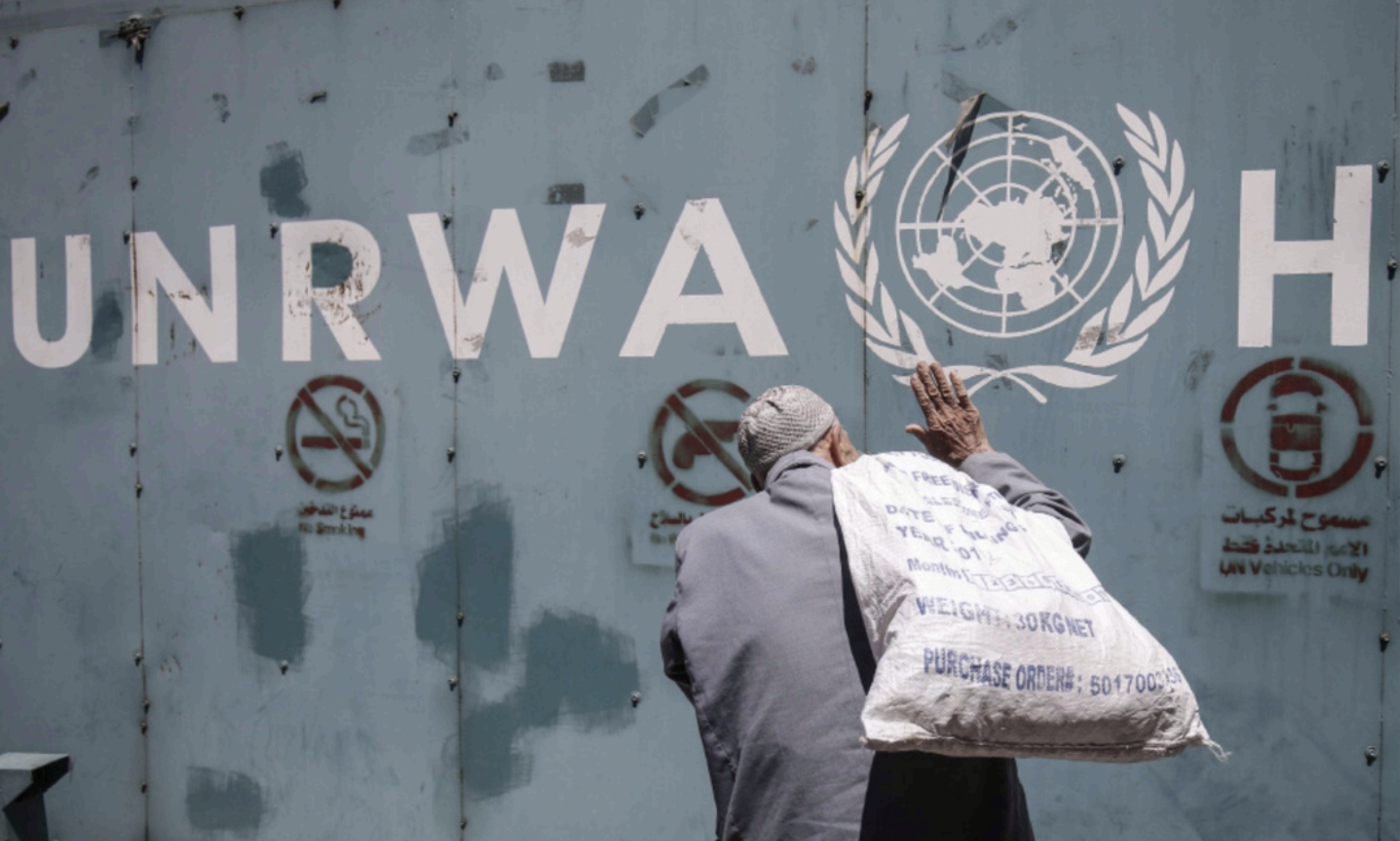
- A Palestinian man standing in front of the emblem of the UN Relief and Works Agency for Palestine Refugees in the Near East (UNRWA) outside the agency's offices in Gaza City.
UN Secretary-General Antonio Guterres said on Thursday “there are reasons to hope” for progress toward ending the decades-old Israeli-Palestinian conflict after years of inaction.
He said the UN will explore all initiatives to facilitate “a true peace process” based on the two-state solution.
Clearly referring to the former US administration without naming then president Donald Trump, the UN chief said “we were completely locked down in a situation in which there was no progress visible”.
Guterres also made no mention of Tuesday’s announcement by US President Joe Biden’s administration that it was restoring relations with the Palestinians and renewing aid to Palestinian refugees, a reversal of Trump’s cutoff and a key element of its new support for a two-state solution.
But the secretary-general made clear that Biden’s more even-handed approach opened the possibility of meetings of the Quartet of Middle East mediators — the US, UN, European Union and Russia — that were previously blocked as well as broader peace efforts.
“We have tried for a long time to make the Quartet meet, but we never had the agreement of all the members for that to be possible,” Guterres told a Press conference. “And we have tried to have inclusive other formulas — possible of an enlarged Quartet with several other important players in the region, and unfortunately, this has not been possible until now.”
“I think it became possible now,” he said, but stressed that a peace process can only be successful if it is based on a two-state solution and “all the international agreements that already exist in this regard”.
Guterres expressed hope that elections “in the state of Palestine” and elections in Israel “will also contribute to create a positive environment for the future of the peace process and for the rights of the Palestinian people, namely, its right to self-determination and its right to independence, to be fully respected”.
The Palestinians have scheduled legislative elections on May 22 and presidential elections on July 31 and Israel will hold legislative elections on March 23.
For more than three decades, the Palestinians have sought an independent state in the West Bank, Gaza and east Jerusalem, territories seized by Israel in the 1967 war. Israel withdrew from Gaza in 2005 but imposed a crippling blockade when the Palestinian militant group Hamas seized power from Palestinian President Mahmoud Abbas’ forces in 2007.
There have been no substantive peace talks between Israel and the Palestinians since Israeli Prime Minister Benjamin Netanyahu was first elected more than a decade ago, and the two sides are fiercely divided over the core issues of the conflict.
At Tuesday’s Security Council meeting, Palestinian Foreign Minister Riad Malki called for revival of the Quartet and reiterated president Abbas’ call for an international peace conference “that can signal a turning point in this conflict”. He also expressed hope that “the US will play an important role in multilateral efforts for peace in the Middle East.”
Russia’s Foreign Minister Sergey Lavrov said Moscow is convinced that the Quartet, working closely with both sides and Arab states, “can play a very, very effective role”.
In support of Abbas’ call for an international conference, Lavrov proposed holding a ministerial meeting this spring or summer with the Quartet and Egypt, Jordan, the UAE and Bahrain as well as Saudi Arabia to analyse the current situation and assist “in launching a dialogue” between Israelis and Palestinians.
Israel’s UN Ambassador Gilad Erdan said the government remains willing to make peace “when there is a willing partner,” but he accused Abbas of inciting violence. He said Abbas should come to the negotiating table “without making outrageous demands and not call for another pointless international conference”.
President Donald Trump’s administration provided unprecedented support to Israel, recognising Jerusalem as Israel’s capital, moving the US Embassy from Tel Aviv, slashing financial assistance for the Palestinians and reversing course on the illegitimacy of Israeli settlements on land claimed by the Palestinians.
The peace plan unveiled by Trump a year ago envisioned a disjointed Palestinian state that turned over key parts of the West Bank to Israel, siding with Israel on key contentious issues including borders and the status of Jerusalem and Jewish settlements. It was vehemently rejected by the Palestinians.







No comments :
Post a Comment